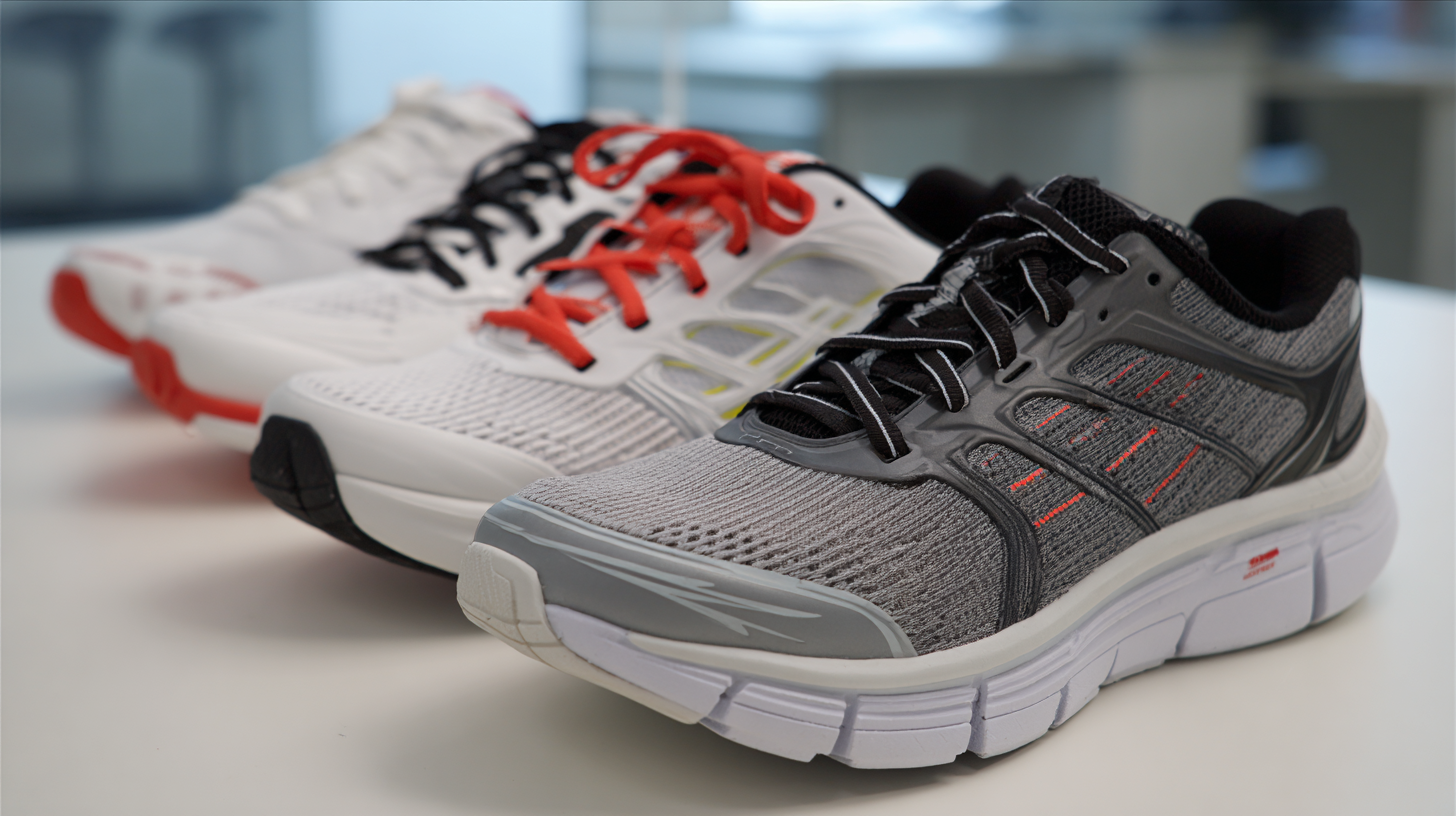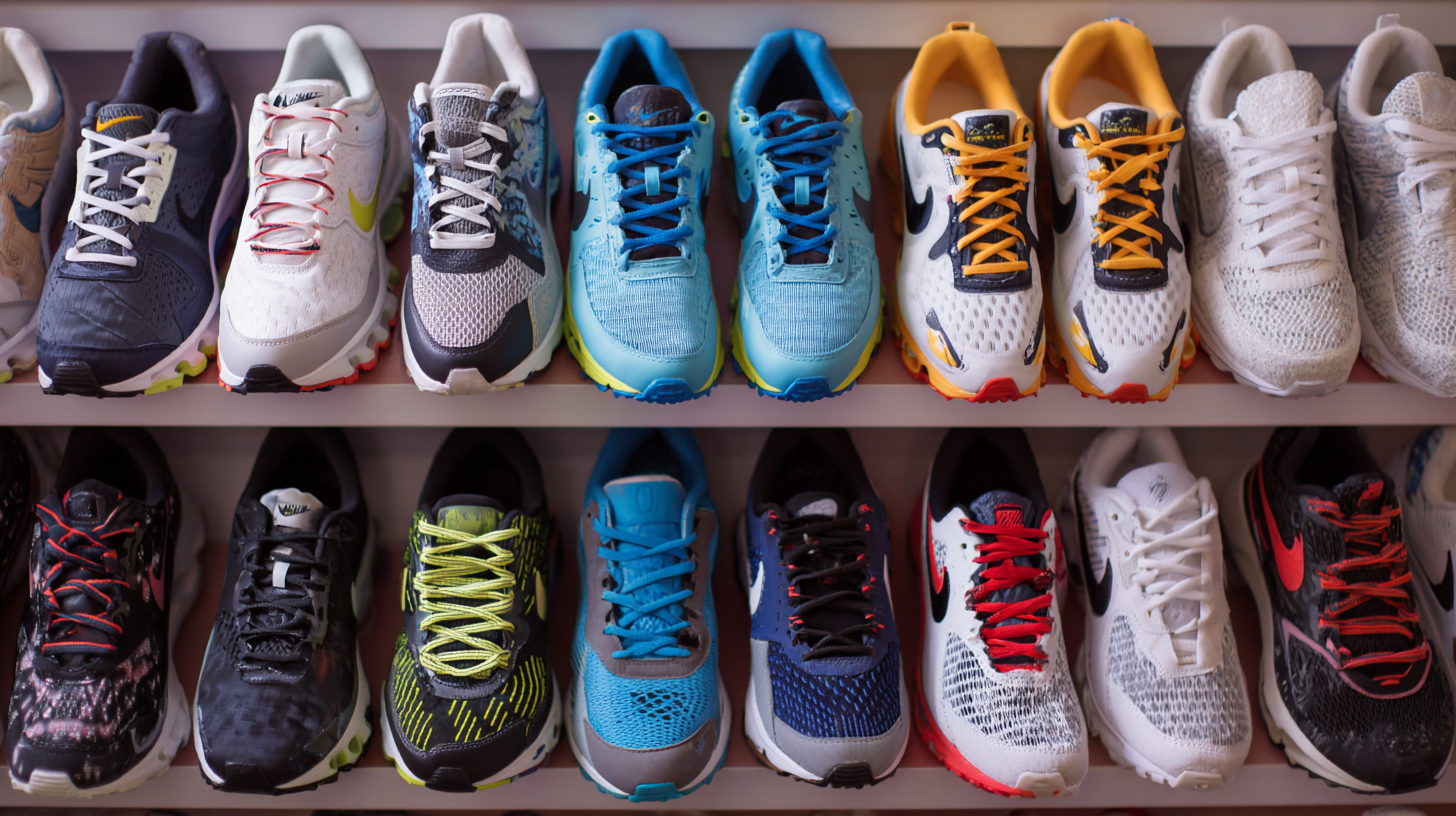
In the competitive landscape of the athletic shoes market, identifying the right manufacturing partner is crucial for brands aiming to deliver high-quality products. According to a 2022 report by Grand View Research, the global athletic footwear market is projected to reach USD 114.8 billion by 2028, growing at a CAGR of 6.6%. This surge underscores the importance of not only innovation in design and technology but also the selection of capable manufacturing partners. As brands seek alternatives to traditional sourcing strategies, understanding the dynamics of potential partners, their production capabilities, and adherence to sustainability practices becomes essential. With consumers increasingly prioritizing quality and performance in athletic shoes, choosing the right manufacturing partner can significantly impact a brand's reputation and market share.

Identifying the best manufacturing partners for premium athletic shoes requires a deep understanding of key attributes that set top manufacturers apart in this competitive landscape. According to a report by Transparency Market Research, the global athletic footwear market is expected to reach $118.8 billion by 2028, highlighting the necessity for manufacturers to maintain high quality and innovation standards.

A crucial attribute to consider is the manufacturer’s ability to implement advanced technologies in production. Companies utilizing state-of-the-art techniques such as 3D printing and automated cutting have shown an ability to enhance precision and reduce waste, catering to an increasingly sustainability-conscious market.
Another significant factor is the manufacturer's commitment to material sourcing and innovation. With a growing demand for eco-friendly materials, brands that partner with manufacturers who prioritize sustainable sourcing and R&D in material technology will stand out. A study by Grand View Research reveals that the recycled material market in footwear is projected to witness a compound annual growth rate (CAGR) of 10.6% from 2021 to 2028. Therefore, prioritizing manufacturers who are aligned with the latest sustainability trends and who invest in high-performance materials can position brands strategically within the premium segment of the athletic footwear market.
Identifying potential manufacturing partners for premium athletic shoes requires a strategic approach grounded in thorough research. Start by assessing manufacturers' production capabilities, focusing on their technological expertise and quality control processes. According to a 2022 report by the Footwear Industry Association, nearly 70% of successful manufacturers invest significantly in automated production technology, which enhances efficiency and product consistency. Look for partners whose facilities are certified in quality management standards such as ISO 9001, ensuring they meet rigorous production criteria.
When evaluating potential partners, leverage online platforms and industry trade shows to gather insights about their market reputation and past performance. Data from Statista indicates that over 60% of shoe brands prioritize sustainability in their production processes. Therefore, inquire about their material sourcing and environmental practices. This not only aligns with consumer demand for sustainable products but also strengthens your brand's commitment to ethical manufacturing.
Tips: Create a checklist of key performance indicators (KPIs) such as lead times, minimum order quantities (MOQs), and flexibility in design modifications. Additionally, conduct interviews or factory visits to understand their work culture and labor conditions, which are crucial for fostering a positive long-term partnership. Remember, a well-aligned manufacturing partner should share your vision for quality and innovation in the competitive athletic footwear market.
| Criteria | Importance Level | Evaluation Method | Score (1-10) |
|---|---|---|---|
| Production Capacity | High | Factory Visits | 8 |
| Quality Control Standards | High | ISO Certification Review | 9 |
| Lead Time | Medium | Supplier Communication | 7 |
| Sustainability Practices | Medium | Sustainability Reports | 8 |
| Cost Competitiveness | High | Quotation Analysis | 6 |
Identifying the right manufacturing partners for premium athletic shoes is crucial in maintaining high production standards and ensuring the final product meets consumer expectations. A significant aspect of this evaluation lies in assessing production capabilities and quality control standards. Companies must adopt comprehensive frameworks that integrate modern technology and methodologies, similar to the Quality 4.0 PMQ framework used in automotive manufacturing. By leveraging machine learning for process monitoring, manufacturers can enhance their quality assurance protocols, thus minimizing defects and ensuring consistency across production runs.
Another critical factor is the implementation of Key Performance Indicators (KPIs) tailored to the unique demands of athletic shoe production. These KPIs should encompass both quantitative and qualitative metrics to provide a holistic view of performance, encompassing not only efficiency but also compliance with safety and quality standards. Tapping into predictive analytics can further refine the assessment of manufacturing systems, ensuring that any risks are mitigated through proactive measures. By prioritizing quality and accountability throughout the partnership, brands can foster relationships with manufacturers who are aligned with their commitment to delivering top-tier athletic footwear.

Effective communication and collaboration are essential components when identifying the best manufacturing partners for premium athletic shoes. A report by Deloitte indicates that companies with strong collaborative relationships with their suppliers tend to outperform their competitors by 15% in terms of supply chain efficiency. This underscores the importance of establishing clear channels of communication that facilitate timely exchanges of information and immediate feedback. Regular meetings and updates can foster a culture of transparency, allowing both parties to address concerns and adapt to changes swiftly.
Moreover, utilizing collaboration tools can significantly enhance the manufacturing process. According to a study by McKinsey, organizations that leverage digital collaboration tools can experience a 20-25% increase in productivity. This is particularly relevant in the fast-paced athletic shoe market, where trends evolve rapidly, and responsiveness is key. Manufacturers who embrace these tools not only improve their operational efficiencies but also strengthen their partnerships by ensuring that both parties are aligned on goals, timelines, and quality standards. Prioritizing effective communication and collaboration can thus lead to more successful and sustainable manufacturing relationships.
Building long-term relationships with reliable manufacturing partners is essential for brands in the competitive landscape of premium athletic shoes. The foundation of such partnerships lies in finding manufacturers who not only possess the technical expertise and capacity to meet your production demands but also share your brand's vision and values. It is crucial to establish clear communication from the outset, allowing both parties to align their goals and expectations. This ongoing dialogue helps build trust and transparency, which are vital for navigating the complexities of production schedules and quality control.
Moreover, investing time in understanding your manufacturing partners' capabilities, processes, and limitations can yield significant long-term benefits. Regular visits to manufacturing facilities, coupled with open discussions about innovation and improvements, can enhance collaboration. By fostering a culture of mutual respect and support, brands can ensure that their partners feel valued and motivated to deliver their best work. Ultimately, a solid partnership not only improves product quality and efficiency but can also drive innovation, positioning brands for success in the athletic footwear market.
This chart represents the evaluation of different criteria when selecting manufacturing partners for premium athletic shoes. The data highlights the importance of quality, cost, communication, and lead times in the decision-making process.
